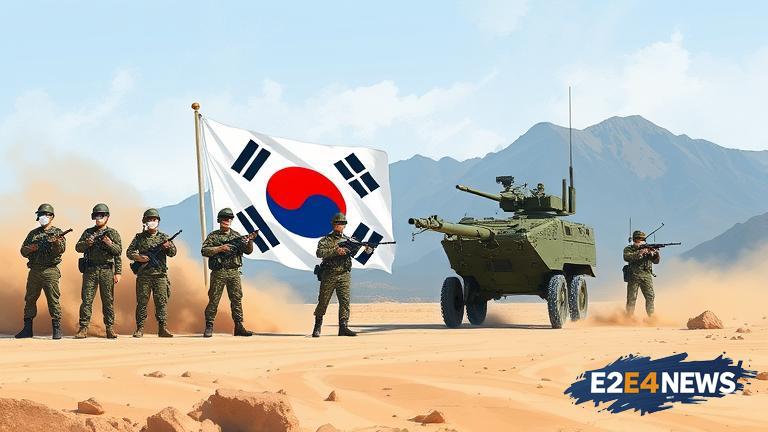The South Korean government has recently unveiled a multifaceted plan aimed at enhancing the country’s national security and defense capabilities. This strategic initiative is designed to address the increasingly complex and dynamic security landscape in the region and globally. The plan encompasses a wide range of measures, including the modernization of military equipment, the development of advanced defense technologies, and the strengthening of international cooperation and alliances. A key component of the plan involves significant investments in the development of cutting-edge defense systems, including cybersecurity, artificial intelligence, and unmanned aerial vehicles. Furthermore, the government intends to bolster its military personnel and training programs to ensure that the armed forces are adequately equipped to respond to emerging threats. The plan also emphasizes the importance of enhancing cooperation with key allies and partners, including the United States, to leverage collective capabilities and promote regional stability. In addition, the government has underscored its commitment to engaging in diplomatic efforts to reduce tensions and promote peace on the Korean Peninsula. The initiative is part of a broader national security strategy that prioritizes the protection of citizens and the advancement of national interests. The government has also announced plans to establish a new national security council to oversee the implementation of the plan and ensure coordination across different government agencies. This council will be responsible for monitoring and assessing security threats, developing strategic responses, and facilitating international cooperation. The plan has been welcomed by defense experts and analysts, who view it as a necessary and timely response to the evolving security environment. However, some critics have expressed concerns about the potential costs and implications of the plan, including the potential for an arms race in the region. Despite these concerns, the government remains committed to implementing the plan, which it believes is essential for ensuring the country’s security and prosperity in the years ahead. The plan is also seen as a key component of South Korea’s efforts to promote regional stability and cooperation, and to contribute to global efforts to address shared security challenges. Overall, the plan reflects the government’s determination to prioritize national security and defense, and to take proactive steps to address the complex and evolving threats facing the country. The government has also emphasized the importance of transparency and accountability in the implementation of the plan, and has committed to providing regular updates and briefings to the public and the legislature. As the plan moves forward, it is likely to be subject to ongoing scrutiny and debate, both domestically and internationally.
